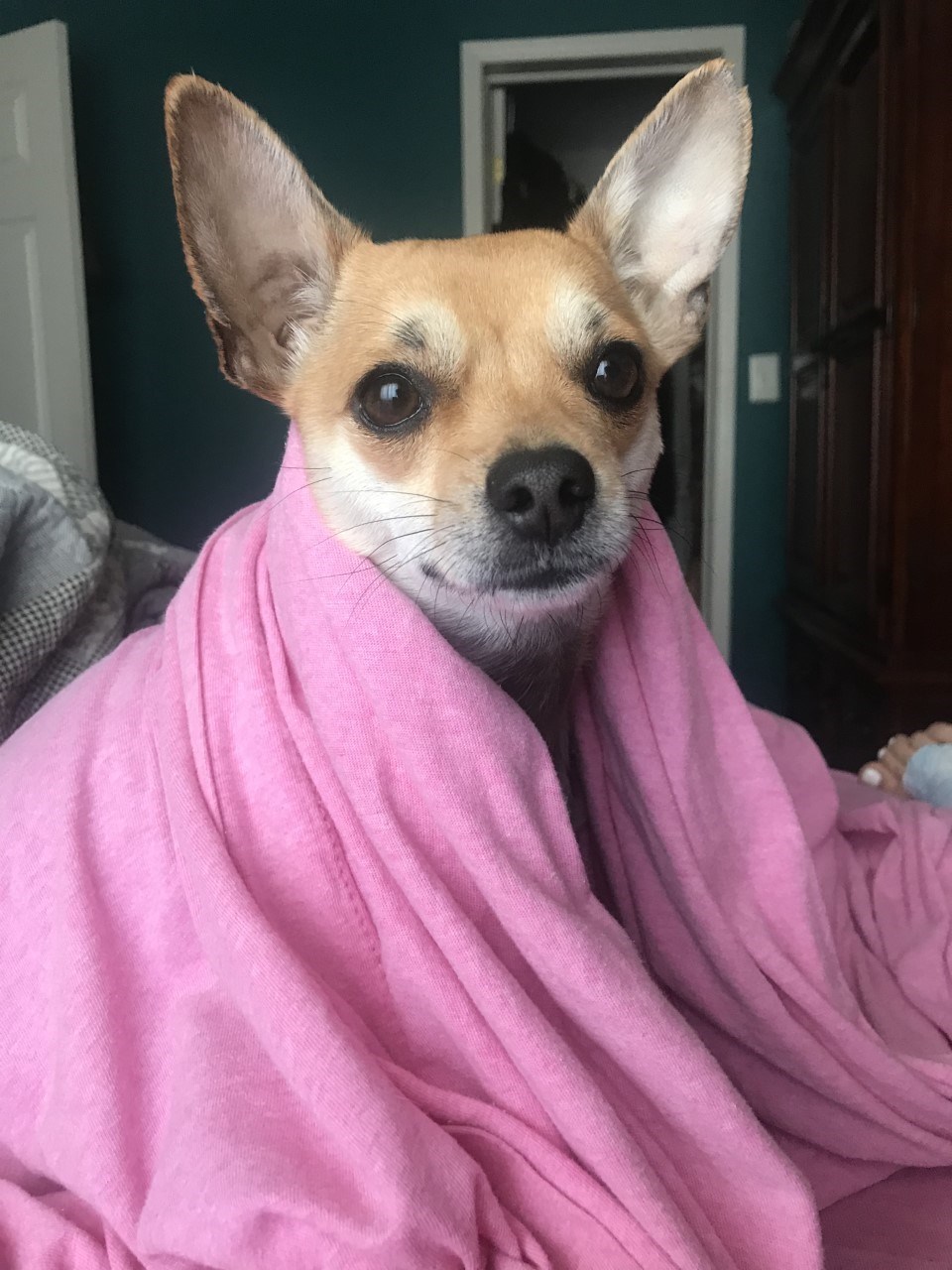Kassidy Lessard heard her young dog Poet shrieking in pain and knew immediately the Chihuahua-mix rescue would require emergency care.
The uncertainty of how to proceed — and what would await them at their local emergency vet — made an already stressful situation much more difficult for the Barrie, Ont., woman.
"The whole thing was just terrifying, honestly," Lessard said in a phone interview with The Canadian Press.
Poet, an approximately three-year-old dog who was rescued by Lessard through a Texas-based organization 18 months ago, was dashing down the stairs one night last week when she mistimed a jump from three steps up and landed awkwardly on a tile floor, breaking the radius and ulna in her right front leg.
Lessard took Poet to the closest 24-hour animal care clinic immediately. But with veterinarians doing what they can to maintain social distance during the COVID-19 outbreak, the pair was instructed to wait in the parking lot before the dog could be seen.
When Poet's turn came, Lessard handed her to a care team member who was wearing gloves and a mask, through a door opened just wide enough to pass her through. Any communication was done over the phone after that.
"I could hear (Poet) crying when they brought her inside so that was brutal," Lessard said. "And it sucked not being able to just go in and comfort her.
"I literally had to hand her off and go because I wasn't allowed inside."
Dr. Ian Sandler, a Toronto-based vet who sits on the national issues committee of the Canadian Veterinary Medical Association, says experiences like the one Lessard had at the emergency care centre — like not being able to physically enter a clinic — will be commonplace while the pandemic rages on.
"I think what's really important for people to know is that it's not business as usual," Sandler said. "The public knows that we do need to flatten the curve, and pets are an extension of the family unit.
"We know how important social distancing is. And so you will see measures like curbside pick-up and drop-off to really decrease veterinarians and their staff from exposure."
Poet was sedated and had her leg wrapped in a cast at the emergency clinic before having surgery the following day at a separate orthopedic vet, where screws and a rod were inserted to stabilize the breaks.
The 11-pound dog is expected to make a full recovery, but it may take up to three months.
"The surgery was actually the easiest part," Lessard said. "The next four weeks, she can't have any exercise at all. She's a really active puppy and right now she's not herself."
While Poet's case was an emergency, veterinarian clinics, deemed essential services in Canada, will continue to provide other types of fundamental care during the pandemic.
Some services will be postponed — your vet may delay a spay or neutering appointment, for example — but Sandler says things like medication, rabies vaccines, and flea and tick prevention should not be interrupted.
Dr. Scott Weese, a veterinarian and a professor at the University of Guelph, says people should call ahead before taking a pet to a clinic for any type of service.
"That way you can get an idea of what to expect," Weese said. "In most situations we're going to say: 'OK, show up, give us a call when you get here. We'll come out and meet you.' ... And if we need more information, we can get that by phone while you're sitting in the parking lot."
Weese said the goal for the duration of the pandemic is to limit the number of procedures being done in a vet clinic, where working together on animals makes it almost impossible for staff to keep a safe distance.
He said cloth masks are being used by vets and technicians in most clinics across Canada during non-surgical procedures, when distance becomes even harder to maintain.
"Basically the fewer animals coming in means fewer routine things going on and less contact with owners," Weese said. "And that in turn means less contact with our staff, and fewer supplies being used because we want to make sure we're not using up supplies that can be used for human health care."
Vets across Canada have also started adopting telemedicine practices and remote consultations, which Sandler called "a major step forward" in the effort to limit in-clinic procedures.
"It prevents one-on-one close interaction but still allows pets and vets to connect," Sandler added.
Weese said it's important to remember that animal care won't be forgotten during the pandemic. And if someone's unsure what types of services can still be provided by their vet, they can just call and ask.
"If your animal is seriously ill, injured or in pain and it's something that we can't manage by telemedicine, then your animal can still be seen," Weese said. "If it's a routine thing, then it's going to be postponed.
"There's a lot of grey areas, but people who have animals with serious problems, things that are impacting that animal's life, they still have the ability to get animal care. ... We're providing as much care as we can while being socially responsible."
This report by The Canadian Press was first published April 8, 2020.
Melissa Couto, The Canadian Press



